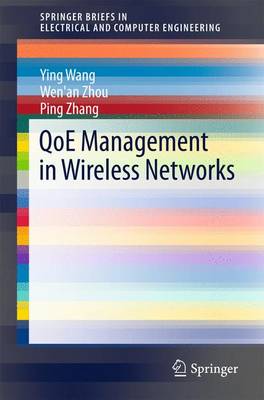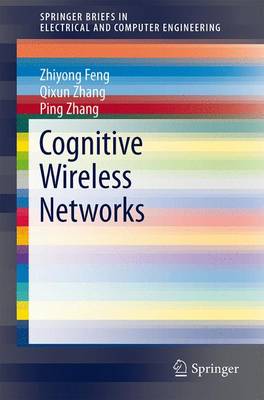SpringerBriefs in Electrical and Computer Engineering
2 total works
QoE Management in Wireless Networks
by Ying Wang, Wen'an Zhou, and Ping Zhang
Published 10 August 2016
This SpringerBrief presents research results on QoE management schemes for mobile services, including user services, and resource allocation. Along with a review of the research literature, it offers a data-driven architecture for personalized QoE management in wireless networks. The primary focus is on introducing efficient personalized character extraction mechanisms, e.g., context-aware Bayesian graph model, and cooperative QoE management mechanisms. Moreover, in order to demonstrate in the effectiveness of the QoE model, a QoE measurement platform is described and its collected data examined. The brief concludes with a discussion of future research directions. The example mechanisms and the data-driven architecture provide useful insights into the designs of QoE management, and motivate a new line of thinking for users' satisfaction in future wireless networks.
This brief examines the current research in cognitive wireless networks (CWNs). Along with a review of challenges in CWNs, this brief presents novel theoretical studies and architecture models for CWNs, advances in the cognitive information awareness and delivery, and intelligent resource management technologies. The brief presents the motivations and concepts of CWNs, including theoretical studies of temporal and geographic distribution entropy as well as cognitive information metrics. A new architecture model of CWNs is proposed with theoretical, functional and deployment architectures supporting cognitive information flow and resource flow. Key technologies are identified to achieve the efficient cognitive information awareness and delivery. The brief concludes by validating the effectiveness of proposed theories and technologies using the CWNs testbed and discussing the importance of standardization practices. The context and analysis provided by this text are ideal for researchers and practitioners interested in wireless networks and cognitive information. Cognitive Wireless Networks is also valuable for advanced-level students studying resource management and networking.

